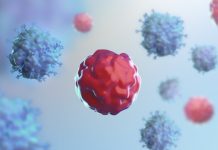
In a groundbreaking development, scientists at the University of Queensland have pinpointed a novel drug target with immense promise in combating cancer drug resistance and halting tumour regrowth.
This discovery, led by Associate Professor Helmut Schaider from UQ’s Frazer Institute, could revolutionise cancer treatment by opening up new avenues for drug development that overcome cancer drug resistance.
What causes cancer drug resistance?
The stark reality is that drug resistance stands as the primary cause of mortality among cancer patients.
For instance, nearly half of lung cancer patients succumb to the disease due to relentless tumour regrowth driven by drug resistance.
This predicament isn’t confined to lung cancer alone; it plagues various cancer types, wreaking havoc on patients and straining healthcare systems worldwide.
Dr Schaider explained the gravity of the situation: “Drug resistance is the single major cause of death in cancer patients.
“Our research has identified a molecule which is crucial for cancer cells to regain the ability to proliferate while under treatment. The next step is to develop drugs to target this molecule.”
Efforts to tackle cancer drug resistance have been underway globally, but success has remained elusive thus far.
One of the key mechanisms responsible for perpetuating cancer drug resistance is an adaptive process rooted in a chronic stress response. This process is responsible for approximately 40% of cancer patients developing drug resistance.
Exploiting a novel drug target
To bridge this critical gap in cancer treatment, Dr Schaider collaborated with the Queensland Emory Drug Discovery Initiative (QEDDI), a subsidiary of UQ’s commercialisation entity UniQuest. Together, they are working on pioneering small molecule inhibitors as novel anticancer therapeutics.
UniQuest CEO, Dr Dean Moss, expressed his enthusiasm for the collaborative effort: “We are utilising Dr Schaider’s expertise in cancer biology and QEDDI’s drug development capabilities to develop novel inhibitors that could become new medicines to treat patients with advanced solid tumours.”
This groundbreaking research was conducted at the Translational Research Institute and received essential support from both the Cancer Council Queensland and the Princess Alexandra Research Foundation.
The results of this promising research have been published in the journal Drug Resistance Updates.
The identification of this potential drug target represents a ray of hope for millions of cancer patients worldwide, offering the prospect of more effective treatments and a brighter future in the battle against this devastating disease.








